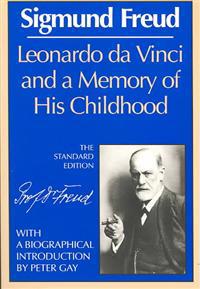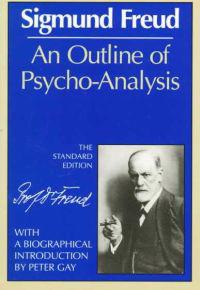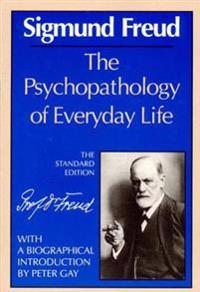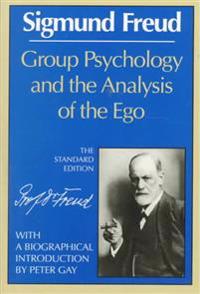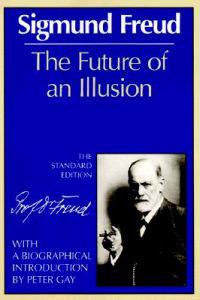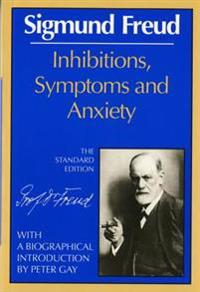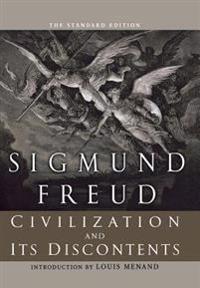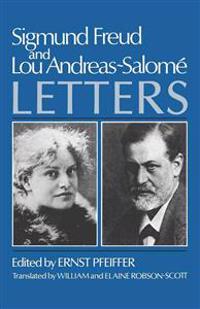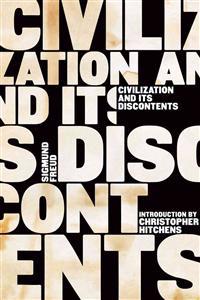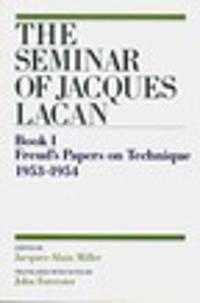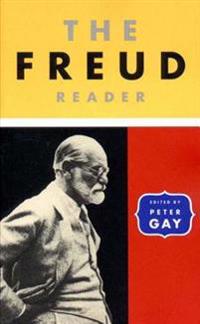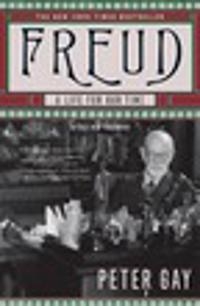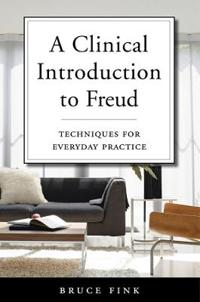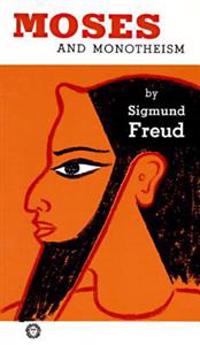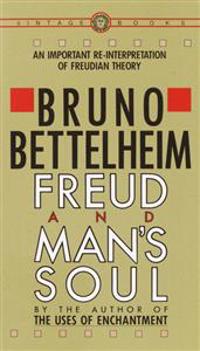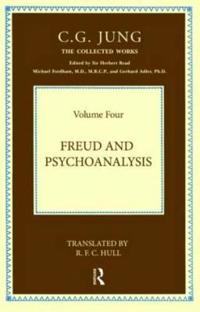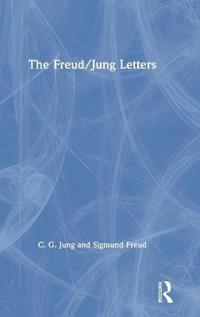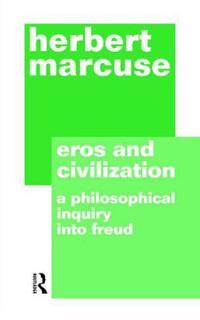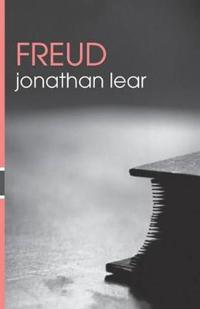Jokes and Their Relation to the Unconscious (Pocket)
avSigmund Freud
ISBN: 9780393001457 - UTGIVEN: 1963-06-01Leonardo Da Vinci and a Memory of His Childhood (Häftad)
avSigmund Freud, James Strachey
ISBN: 9780393001495 - UTGIVEN: 199001.
An Outline of Psycho-Analysis (Pocket)
avSigmund Freud, James Strachey, Peter Gay
ISBN: 9780393001518 - UTGIVEN: 198910Freud approved the overall editorial plan, specific renderings of key words and phrases, and the addition of valuable notes, from bibliographical and explanatory. Many of the translations were done by Strachey himself; the rest were prepared under his supervision. The result was to place the Standar[...]
The Psychopathology of Everyday Life (Inbunden)
avSigmund Freud
ISBN: 9780393006117 - UTGIVEN: 1971-04Along with the "Introductory Lectures on Psycho-Analysis, " the present text remains one of Freud's most widely read. It is filled with anecdotes, many of them quite amusing, and virtually bereft of difficult technical terminology. And Freud put himself on the line: numerous acts of willful forgetti[...]
Beyond the Pleasure Principle (Häftad)
avSigmund Freud, James Strachey, Peter Gay
ISBN: 9780393007695 - UTGIVEN: 199004.
Group psychology and the analysis of the ego (Pocket)
avSigmund Freud, Peter (INT) Gay, James (EDT) Strachey
ISBN: 9780393007701 - UTGIVEN: 1975-02The question he addresses here is, What are the emotional bonds that hold collective entities, such as an army and a church, together? It is a fruitful question, and Freud offers some interesting answers. But Group Psychology and the Analysis of the Ego stands chiefly as an invitation to further psy[...]
The Future of an Illusion (Häftad)
avSigmund Freud, James Strachey, Peter Gay
ISBN: 9780393008319 - UTGIVEN: 198909.
Inhibitions, Symptoms and Anxiety (Pocket)
avSigmund Freud, Peter Gay, James Strachey
ISBN: 9780393008746 - UTGIVEN: 197711On three or four occasions in his career as a psychoanalytic theoretician, Freud changed his mind on fundamental issues. Setting forth in rich detail Freud's new theory of anxiety, Inhibitions, Symptoms and Anxiety (1926) is evidence for one of them. In rethinking his earlier work on the subject, Fr[...]
Civilization And Its Discontents (Inbunden)
avSigmund Freud, James Strachey, Peter Gay
ISBN: 9780393059953 - UTGIVEN: 200501Civilization and Its Discontents may be Sigmund Freud's best-known work. Originally published in 1930, it seeks to answer ultimate questions: What influences led to the creation of civilization? How did it come to be? What determines its course? In this seminal volume of twentieth-century thought, F[...]
Sigmund Freud and Lou Andreas-Salomae, Letters (häftad)
ISBN: 9780393302615 - UTGIVEN: 1985-11Lou Andreas-Salome (1861-1937) was a writer and disciple of Freud who became a practicing analyst. For over two decades she and Freud kept up an intensive correspondence. Freud found in her a perceptive appreciater and amplifier of his ideas, and Frau Andreas found him a sympathetic critic of her ow[...]
Civilization and Its Discontents (Häftad)
avSigmund Freud
ISBN: 9780393304510 - UTGIVEN: 201008Freud's seminal volume of twentieth-century cultural thought grounded in psychoanalytic theory, now with a new introduction by Christopher Hitchens. Written in the decade before Freud's death, Civilization and Its Discontents may be his most famous and most brilliant work. It has been praised, disse[...]
The Seminar of Jacques Lacan: Freud's Papers on Technique (Häftad)
avJacques Alain-Miller, Jacques Lacan, Jacques-Alain Miller
ISBN: 9780393306972 - UTGIVEN: 199101.
The Freud Reader Reissue (Inbunden)
ISBN: 9780393314038 - UTGIVEN: 1995-09Provides fifty-one texts spanning Freud's career, including his writings on psychoanalysis, mind, dreams, sexuality, literature, religion, art, politics, and culture[...]
A Clinical Introduction to Freud
ISBN: 9780393711967 - UTGIVEN: 2017-03Having taught Freud to both undergraduate and graduate students for twenty years, Bruce Fink provides a highly readable introduction to Freud's work that emphasises Freud's enduring clinical relevance and usefulness to practitioners of many persuasions-not just to those who are psychoanalytically tr[...]
Moses and Monotheism (Pocket)
avSigmund Freud
ISBN: 9780394700144 - UTGIVEN: 196706Freud's speculations on various aspects of religion where he explains various characteristics of the Jews in their relations with the Christians.[...]
Totem and Taboo (Pocket)
avSigmund Freud
ISBN: 9780394701240 - UTGIVEN: 1960-04In this controversial study Sigmund Freud (1856-1939) applies the theories and evidence of his psychoanalytic investigations to the study of aboriginal peoples and, by extension, to the earliest cultural stages of the human race before the rise of large-scale civilizations. Freud points out the stri[...]
Freud and Man's Soul: An Important Re-Interpretation of Freudian Theory (Häftad)
avBruno Bettelheim
ISBN: 9780394710365 - UTGIVEN: 198312Argues that mistranslation has distorted Freud's work in English and led students to see a system intended to cooperate flexibly with individual needs as a set of rigid rules to be applied by external authority.[...]
Freud's Mistress (Inbunden)
ISBN: 9780399163074 - UTGIVEN: 2013-07His theories would change the world--and tear hers apart.A page-turning novel inspired by the true-life love affair between Sigmund Freud and his sister-in-law. It is fin-de-siecle Vienna and Minna Bernays, an overeducated lady's companion with a sharp, wry wit, is abruptly fired, yet again, from he[...]
Freud and Psychoanalysis 4
ISBN: 9780415094467 - UTGIVEN: 1961-03First published in 1961. Routledge is an imprint of Taylor & Francis, an informa company.
Freud-Jung Letters (Inbunden)
ISBN: 9780415119825 - UTGIVEN: 1995-01Unavailable for many years the famous Freud/Jung Letters are now back in print. As historical documents the letters reflect the early struggles of Freud and Jung in gaining acceptance for analysis. The two exchange candid opinions on their colleagues, plan strategies for the advancement of their c[...]
Eros and Civilization: A Philisophical Inquiry into Freud
ISBN: 9780415186636 - UTGIVEN: 1998-05In this classic work, Herbert Marcuse takes as his starting point Freud's statement that civilization is based on the permanent subjugation of the human instincts, his reconstruction of the prehistory of mankind - to an interpretation of the basic trends of western civilization, stressing the philos[...]
Leonardo Da Vinci (Pocket)
avSigmund Freud
ISBN: 9780415253864 - UTGIVEN: 2001-05-17The text includes the first full emergence of the concept of narcissism and develops Freud's theories of homosexuality.[...]
Totem And Taboo (Pocket)
avSigmund Freud
ISBN: 9780415253871 - UTGIVEN: 2001-05-17If you don't know your incest taboo from your Oedipal complex, and you want to understand more about the culture we're living in, then Totem and Taboo is the book to read.[...]
Freud (Storpocket)
avJonathan Lear
ISBN: 9780415314510 - UTGIVEN: 200506Jonathan Lear clearly introduces and assesses all of Freud's thought, focusing on those areas of philosophy on which Freud is acknowledged to have had a lasting impact. These include the philosophy of mind, free will and determinism, rationality, the nature of the self and subjectivity, and ethics a[...]


